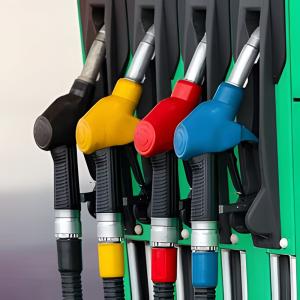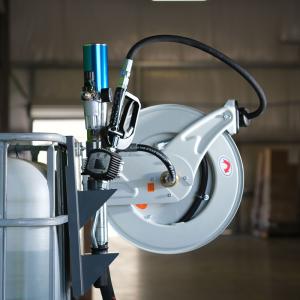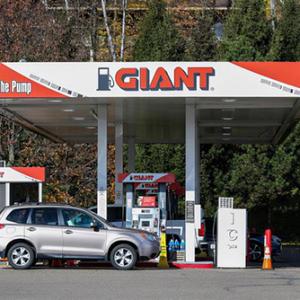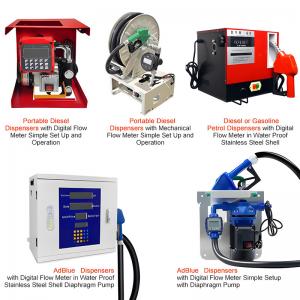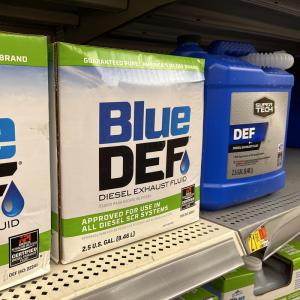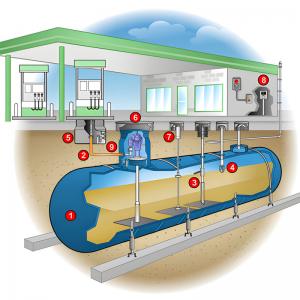The Perils of Procrastination: what happens if you use expired def fluid?
The Perils of Procrastination: What Happens When You Use Expired DEF Fluid?
Allowing your Diesel Exhaust Fluid (DEF) to expire before use can lead to a cascade of costly problems, from expensive repairs to your vehicle's emissions system to being stranded on the side of the road. This isn't just an inconvenience; it's the real cost of procrastination. DEF is essential for modern diesel vehicles. It's not only key to meeting environmental regulations but also vital for ensuring your engine runs efficiently and smoothly. This guide will walk you through everything you need to know about DEF to help you avoid unnecessary risks and expenses.
What Is DEF Fluid and What Is Its Purpose?
The Science Behind the Fluid: Composition and Standards
Diesel Exhaust Fluid isn't a fuel additive; it's a separate fluid your vehicle consumes. It has a very specific recipe: 32.5% high-purity urea and 67.5% deionized water. This precise concentration is critical. It ensures the fluid freezes at an optimal temperature and works effectively in your vehicle's emission control system.
When you buy DEF, always look for two important certifications: ISO 22241 and the American Petroleum Institute (API) certification. These labels are your guarantee that the product is pure, high-quality, and compatible with your vehicle. Using certified DEF protects the expensive after-treatment system in your truck.
The Purpose of DEF: How SCR Systems Reduce Emissions
DEF plays a starring role in your vehicle's Selective Catalytic Reduction (SCR) system. The process is quite clever. The SCR system sprays a fine mist of DEF into the hot exhaust stream. The heat from the exhaust transforms the DEF into ammonia (NH₃). This ammonia then travels to a special catalyst, where it triggers a chemical reaction with harmful nitrogen oxides (NOx), a major component of air pollution. The reaction converts the NOx into harmless nitrogen (N₂) and water (H₂O).
In short, DEF is what allows modern diesel engines to be both powerful and clean. It's a key part of keeping your vehicle legally on the road and environmentally friendly.
The Critical Issue: Shelf Life and the Dangers of Expired DEF
How Long Does DEF Fluid Last? Factors Affecting Shelf Life
Typically, DEF has a shelf life of one to two years. However, this can change dramatically depending on how it's stored. The two biggest enemies of DEF are high temperatures and direct sunlight. Heat speeds up the breakdown of the urea in the solution, making it ineffective. A simple rule to remember is: the hotter the storage temperature, the shorter the shelf life.
Identifying Expired or Contaminated DEF
Fresh, good-quality DEF should be completely clear and colorless, with no smell. If you notice any of the following signs, your DEF is likely expired or has been contaminated:
-
It looks cloudy or murky.
-
You see crystals or sediment floating in it.
-
The fluid has turned yellow or has taken on any color.
The Chain Reaction of Failure: What Happens Inside Your Engine
Using expired DEF sets off a disastrous chain of events inside your vehicle.
First, the urea concentration drops, meaning not enough ammonia is produced to neutralize the NOx emissions. This results in your vehicle failing to meet emission standards. Then, as the DEF breaks down, it can form hard crystals. These crystals can clog the DEF lines, filters, and injector nozzle.
This blockage and contamination can damage the sensitive components of the SCR system, including the DEF pump and the expensive SCR catalyst itself. Your vehicle's sensors will detect these problems and trigger a warning light on your dashboard. Eventually, the engine's computer will put the vehicle into "limp mode," drastically reducing engine power and speed until the issue is fixed.
Best Practices for Handling and Storing DEF
Proper Storage to Maximize Shelf Life
To get the most out of your DEF, store it in a cool, dry, and well-ventilated place away from direct sunlight. The ideal storage temperature is between 12°F and 86°F (-11°C to 30°C). It’s also a good idea to use the oldest DEF you have first to keep your supply fresh.
Choosing the Right Equipment: From DEF Dispenser to Transfer Pump
For businesses with a fleet of vehicles, using a professional DEF dispenser or transfer pump to move the fluid from large containers is the safest and most efficient method. For individual users, buying DEF in smaller, sealed containers is the most convenient and reduces the risk of contamination.
Step-by-Step Guide to Refilling Your DEF Tank
-
Locate the DEF fill port. It almost always has a distinctive blue cap and is separate from the diesel fuel tank opening.
-
Before you open the cap, wipe the area clean to prevent any dirt or debris from falling into the tank.
-
Use a clean, dedicated funnel or nozzle to pour the DEF into the tank.
-
Crucially: Never put DEF in the diesel tank, and never put diesel or any other liquid in the DEF tank. This mistake can cause catastrophic damage.
Frequently Asked Questions (FAQ) About DEF Fluid
Q1: What happens if I accidentally put diesel in my DEF tank?
A: Do not start the engine under any circumstances. This will cause immediate and severe damage to the entire SCR system. You must have the vehicle towed to a mechanic to have the DEF tank and system completely drained and cleaned.
Q2: Can I mix different brands of DEF?
A: Yes. As long as all the brands are API certified and meet the ISO 22241 standard, they are fully compatible and can be mixed without any issue.
Q3: Will DEF freeze in the winter?
A: Yes, DEF will freeze at about 12°F (-11°C). However, all vehicles with SCR systems have a heater in the DEF tank that will thaw the fluid shortly after the engine starts. The freezing and thawing process does not damage the DEF.
Q4: My truck is in limp mode due to a DEF issue. What should I do?
A: Pull over to a safe location as soon as possible. Sometimes, turning the engine off and restarting it can temporarily reset the system, but the underlying problem must be addressed. It could be a low DEF level, poor quality (expired) fluid, or a sensor malfunction. The first step is to add fresh, high-quality DEF. If the problem persists, you need to see a mechanic.
Q5: Can I bypass the DEF system?
A: While it might be technically possible, it is illegal in the United States and many other countries to tamper with or bypass a vehicle's emission control system. Doing so can result in very large fines and will void your vehicle's warranty.
In conclusion, using fresh, certified DEF is not a minor detail. It is a fundamental part of protecting your vehicle, ensuring its reliability, and complying with the law. The "cost of procrastination" is far more than just a repair bill; it's lost time and a potential safety hazard. Make it a habit to check your DEF level regularly and store it properly. Don't let procrastination cost you. Check your DEF today for a cleaner, more reliable drive.

